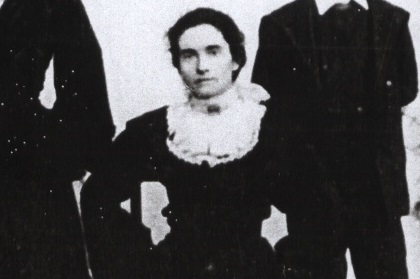Blog
Preserving your family’s story for future generations

Nowadays, most families are too busy to spend much time listening to their elders’ stories. This means that often, when the great-grandparents, grandparents or parents pass away, most of their and your family’s stories pass away with them, and they are lost forever.
Why preserve your family’s stories
Do you have a parent, grandparent or great-grandparent who remembers their childhood, early adulthood, or the stories their parents or grandparents told them about the olden days? Do you remember stories you parents or grandparents told you when you were young?
Have any of these stories been recorded?
If you document your family’s stories, you will save them from being lost. You will be preserving them, not just for you and your children, but for future generations.
Documenting your family’s life stories – DIY
If an elder has written down their memories or typed their stories themselves, we recommend you ask help from a professional memoir editor at Life Stories Australia (LSA), or Institute of Professional Editors (IPEd), to have that manuscript transformed into a book.
If the elder’s stories are still in their head, someone needs to listen to them telling their stories, and while they speak:
- record the discussion using a digital audio recorder/audio recording app, or
- record the discussion using a video-recorder or video-recording app, or
- type everything they say, into a document.
If you are experienced in using recorders, or typing, and have enough time at your disposal, you can document the elder’s stories yourself.
Note: while the preferred method of listening is usually face to face, the more efficient method is usually via phone and internet (Skype, Facetime or Zoom).
If you have recorded the stories as a typed or written document, we recommend you ask help from a professional memoir editor at LSA, or IPEd, to have that manuscript transformed into a book.
If you have recorded the stories as digital video files, we recommend you ask help from a professional member of LSA to have that footage transformed into a life stories video.
How LSA helps you document your family’s life stories
Unless you have plenty of experience in typing, writing, or using video or audio recorders, we recommend you get a professional to help you document your family’s stories from the outset.
You can find a professional life stories writer at LSA to discuss how we can help you. For example, we may offer to:
- scribe and edit the stories and produce a photocopied book/booklet (memoir, autobiography) for the family, or
- scribe, write, compile and edit the stories, then produce a professionally-designed, self-published book (memoir, autobiography), or
- record and produce a video recording of your elder’s or family’s stories.
About Life Stories Australia (LSA)
LSA members specialise in different life stories areas including:
- scribing, editing and producing life stories books (memoirs and autobiographies), based on the storyteller’s spoken memories
- writing life stories (memoirs and autobiographies) based on research
- recording and producing life stories videos.
If you would like more information about documenting or self-publishing your family’s stories, contact me here, or contact Life Stories Australia.
Edited by Dee Sansom – On Time Typing, Editing and Proofreading
Image: SW Kane’s ancestor Margaret Egan, late 1800s
Back To Blog

